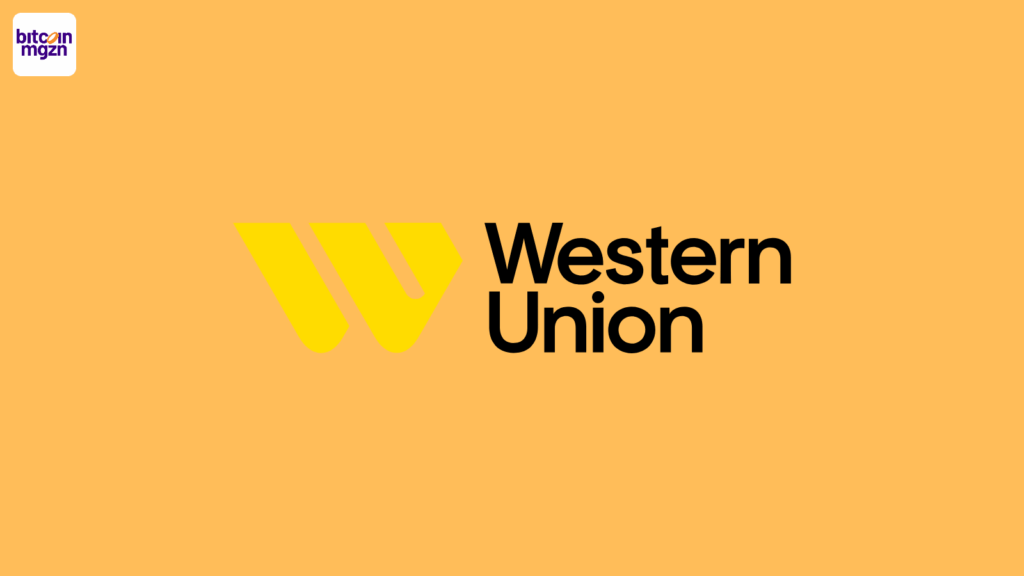Duke of Cambodia, 120,000 bitcoins confiscated by the United States, how did Chen Zhi start his career?
Author: Aki Wu Talks Blockchain
Chen Zhi (also known as Vincent) is a 37-year-old Chinese-born businessman. He is the founder and chairman of the Cambodian conglomerate Prince Holding Group and one of the country's most influential businessmen. Reportedly holding dual British and Cambodian citizenship, Chen Zhi has served as an advisor to two Cambodian Prime Ministers, Hun Sen and Hun Manet, and has been awarded the honorary title of "Duke" by the government, making him a prominent figure in both the political and business circles. Recently, the US and UK governments imposed joint sanctions on Chen Zhi and his Prince Group. The US Department of Justice indicted him on charges of wire fraud and money laundering, confiscating over $15 billion worth of Bitcoin, calling it "one of the largest financial frauds in history." This article, based on public reports and US and UK judicial documents, will uncover Chen Zhi's underworld rise to become Cambodia's "Godfather," and the complex web of money and power transactions behind him.
Internet cafe owner transformed into real estate tycoon
Chen Zhi was born in Fujian, China in December 1987. He dabbled in small business in his early years in China. According to the websites of the companies he invested in, he demonstrated a knack for business at a young age, having assisted in his family's business and founded an internet cafe. Around 2011, Chen Zhi began to set his sights on Southeast Asia and decided to relocate to Cambodia to explore opportunities and join the booming real estate industry.
After moving to Cambodia, Chen Zhi capitalized on the opening of the local economy and the influx of Chinese investment, rapidly expanding his entrepreneurial empire. In 2015, he founded Prince Holding Group, which he transformed into one of Cambodia's largest conglomerates within a few years. Since its establishment, Prince Group has focused on real estate development, with a presence in every corner of Cambodian cities, from the capital Phnom Penh to the coastal province of Sihanoukville. For example, the group's real estate development helped transform Sihanoukville from a sleepy coastal town into a bustling casino-filled city, accumulating hundreds of millions of dollars in wealth for Chen Zhi. Following his success in real estate, he ventured into finance, founding a microfinance institution and providing banking services. In 2018, he obtained a full banking license to establish Prince Bank. In just a few years, Chen Zhi transformed himself from an unknown young Chinese man to a billionaire Cambodian business magnate.
Today, the Prince Holding Group, controlled by Chen Zhi, has diversified businesses covering real estate, financial services, consumer products and other fields. The group's major companies include Prince Real Estate Group, Prince Global Real Estate Group and Prince Bank. Its footprint is not only throughout Cambodia, but it also claims to have expanded its business to more than 30 countries and regions. According to Lianhe Zaobao, Prince Group's total real estate investment in Cambodia has reached US$2 billion, and its well-known projects include landmark properties such as the Prince Plaza Shopping Center in Phnom Penh. Chen Zhi himself has also been highly engaged in charitable activities through the group's charitable organization, the Prince Foundation. The group's official website describes him as a "highly respected entrepreneur and well-known philanthropist." However, behind this seemingly glamorous business empire lies a shocking dark side.
The glitz and glamour of the Prince Group and the "pig-killing" scam
While the Prince Group's apparent business portfolio encompasses traditional industries like real estate and banking, US law enforcement investigations reveal it operates a vast transnational fraud network. This type of scam is known as "pig-killing schemes." The US Department of Justice's indictment details the operations of the Prince Group's fraud empire. Chen Zhi, under his command, led the group to establish at least 10 large-scale fraud operations across Cambodia, where they imprisoned and forced migrant workers from various countries to engage in fraudulent activities. Through investment scams like "pig-killing schemes," they caused massive losses globally, particularly to Americans. This led to prosecution and sanctions from the US government. The UK Foreign and Commonwealth Office (FCDO) also announced sanctions against Chen Zhi, the Prince Group, and their associates on the same day, freezing their high-value London real estate (including a mansion on Avenue Road worth approximately £12 million, an office building on Fenchurch Street worth approximately £100 million, and several apartments).
These industrial parks are like closed "high-tech fraud factories," housing "phone farms" equipped with hundreds of thousands of phones and computers, operating tens of thousands of fake social media accounts used to perpetrate global fraud. Within these fraud factories, trafficked workers live a life of virtual captivity: they are held captive within the industrial parks and face threats of violence and even torture if they refuse to comply with the fraud. U.S. Assistant Attorney General John Eisenberg described this criminal empire as "built on human suffering," and an investigation confirmed its involvement in human trafficking, with workers forcibly detained in prison-like camps to perpetrate the fraud.
To launder illicit proceeds, the group also engaged in large-scale money laundering operations through affiliated companies, using online gambling platforms and cryptocurrency mining operations to circulate the proceeds. (Ironically, this also foreshadowed the subsequent US seizure of $15 billion worth of Bitcoin from the group.) They also set up shell companies in offshore financial centers like the British Virgin Islands and invested the illicit proceeds in overseas real estate to obscure the funds' whereabouts. The US Department of Justice stated that Chen Zhi, fully aware of the principle that money talks, used political influence and bribery to ensure the integrity of the fraudulent industry, funneling benefits to corrupt officials in exchange for protection. All of this transformed the Prince Group into what the US government called "one of Asia's largest transnational criminal organizations."
Cambodian political relations: the honorary title of Duke and the status of "Crown Prince"
Chen Zhi is not only a business giant in Cambodia, but also deeply integrated into the circle of power. After naturalizing as a Cambodian citizen, he made full use of his wealth and connections to win the recognition and favor of the government. For example, in 2017, he was appointed as an advisor to the Ministry of Interior by royal decree, with a rank equivalent to that of a senior government official. Soon after, it was reported that he became a personal advisor to then-Prime Minister Hun Sen, providing direct advice to the top leadership. Even after Hun Sen stepped down in 2023 and his son Hun Manet succeeded him as prime minister, Chen Zhi is still said to have retained his advisory position, showing his continued influence in the old and new regimes. In the business world, he also received symbolic honors - in July 2020, Chen Zhi was awarded the honorary title of "Duke" by the government for his contribution to Cambodia's economic development, and was personally awarded the medal by Prime Minister Hun Sen.
This honorary title holds exceptional esteem in Cambodia. It is one of the highest civilian honors bestowed by the Cambodian royal family upon civilians who have made significant donations and contributions to society. Officially conferred by royal decree, Chen Zhi was thus officially honored with this distinguished title, further solidifying his prominent position in Cambodian society. He was no longer just an ordinary businessman from afar, but rather the revered Duke Chen Zhi. Therefore, both in terms of his status and his connections in the political and business world, Chen Zhi was a highly regarded figure in Cambodian power circles—he was highly regarded by the upper echelons, enjoying regular attendance at the banquets of the wealthy. At this point, Chen Zhi was at the height of his career, wielding immense wealth, the support of government power, and the patronage of his philanthropic and academic circles. He was a household name in Cambodia.
After being awarded the title of "Lord", Chen Zhi took a photo with then Cambodian Prime Minister Hun Sen (first from the right)
However, following the sudden onslaught of US and UK sanctions, this "honeymoon" relationship between government and business is facing a test. The Cambodian government has adopted a more cautious approach since the incident came to light. A spokesperson for the Ministry of Interior stressed that Prince Group's operations in Cambodia have "always complied with the law" and that it is treated no differently from other large investment companies. Regarding Chen Zhi's acquisition of Cambodian citizenship, officials also stated that this was the result of legal procedures. Furthermore, the authorities stated that they would cooperate with formal, evidence-based requests from other countries and "would not shelter lawbreakers." However, it is worth noting that, to date, the Cambodian government has not filed charges or launched an investigation into any illegal activities by Chen Zhi or Prince Group within Cambodia. Some analysts believe this reflects the continued influence of Chen Zhi's extensive network of connections in Cambodia, leading to a more cautious approach to the case. Chen Zhi's deep ties with Cambodia's elite and his well-protected status highlight the country's role as a hotbed for online fraud. However, with increasing international pressure, Chen Zhi's once-robust status as a Cambodian "safe haven" may be jeopardized.
Reference articles:
You May Also Like

Tether Gold Breaks $2 Billion, Fueling Tokenized Asset Momentum

MetaMask Launches $30M Rewards Program on Mobile
